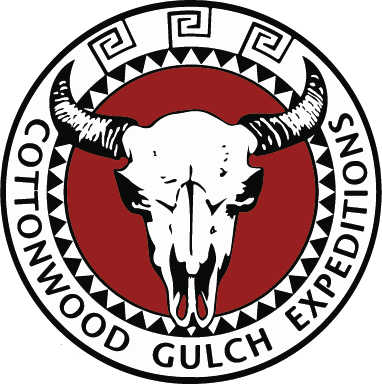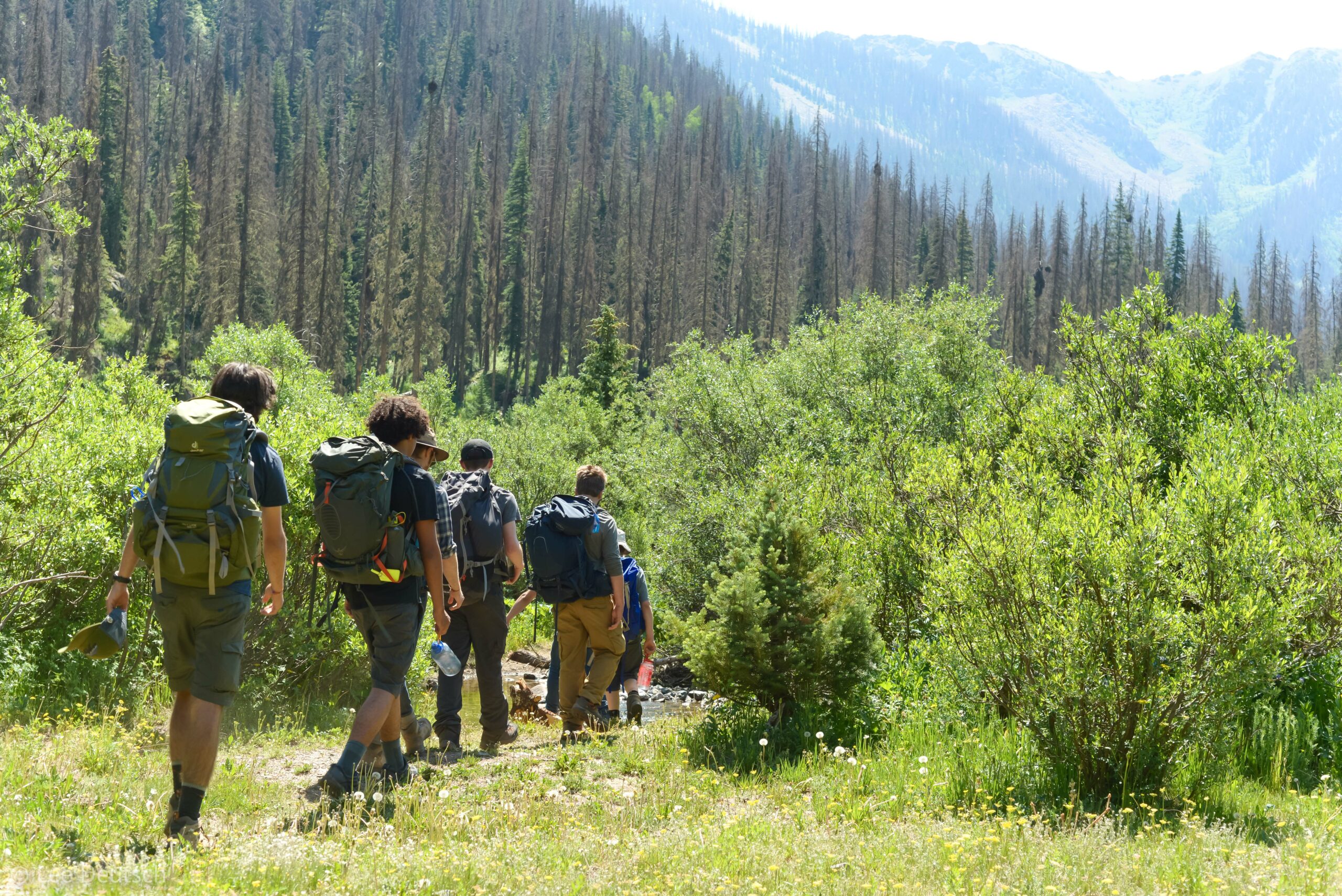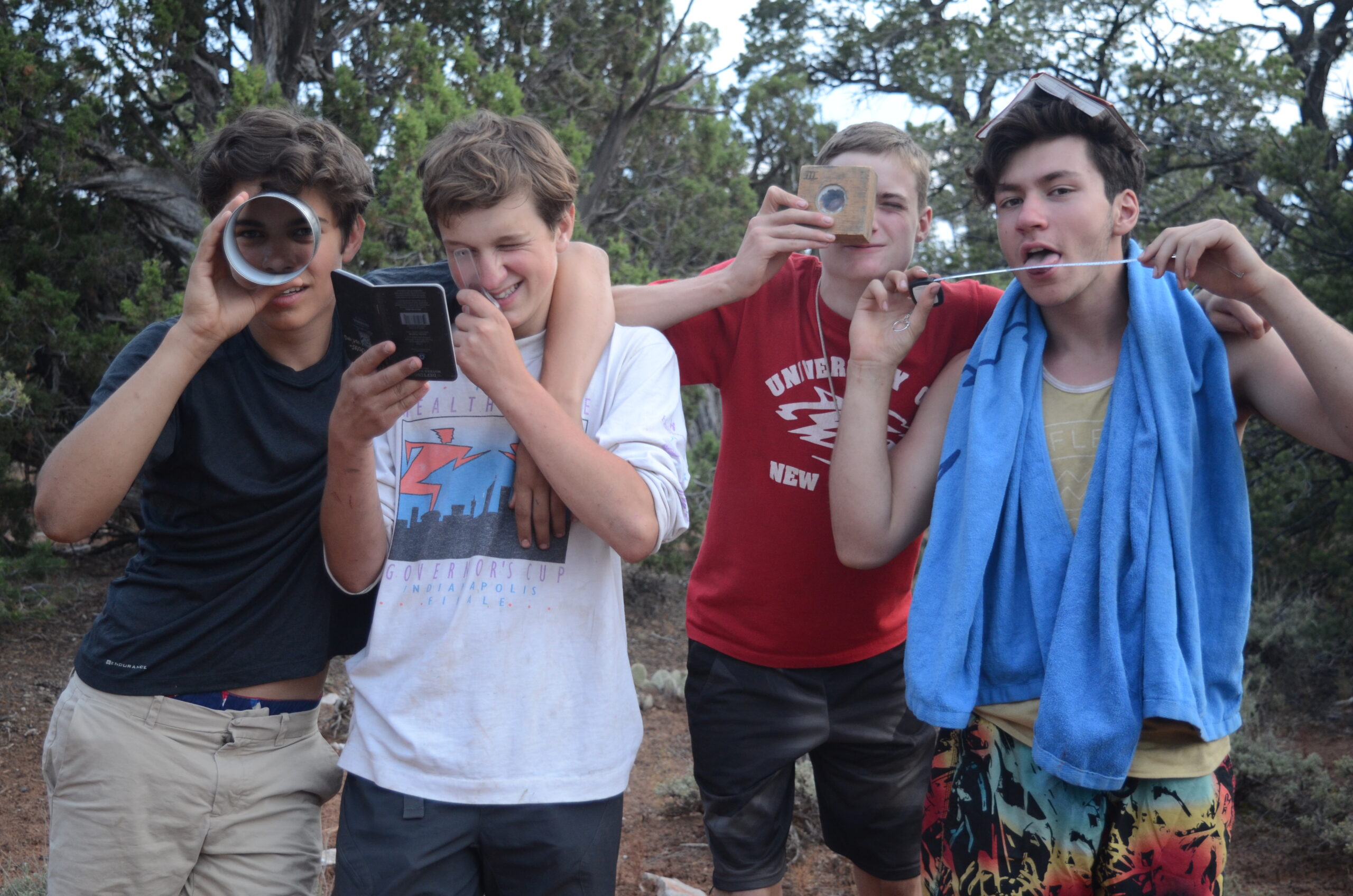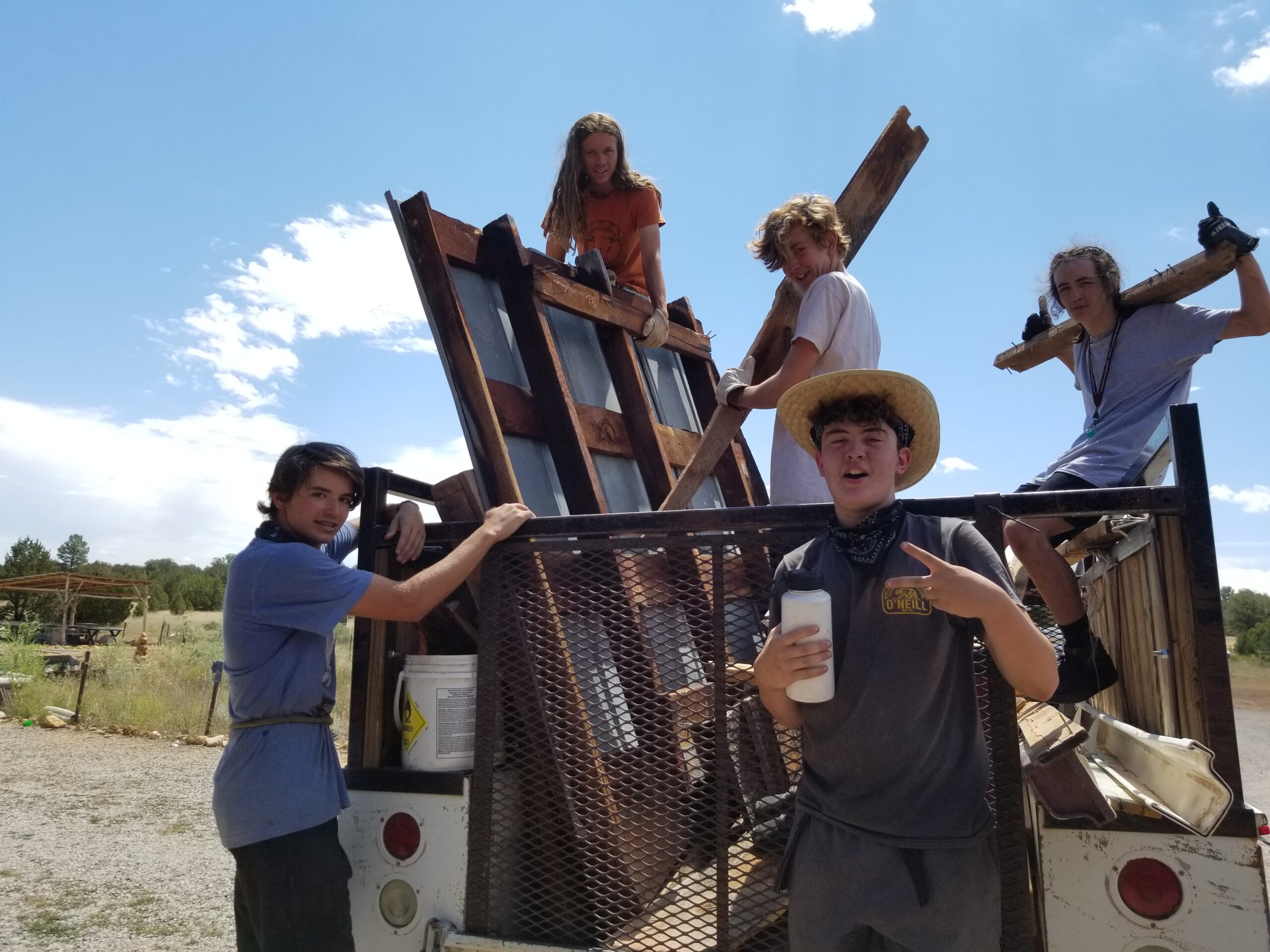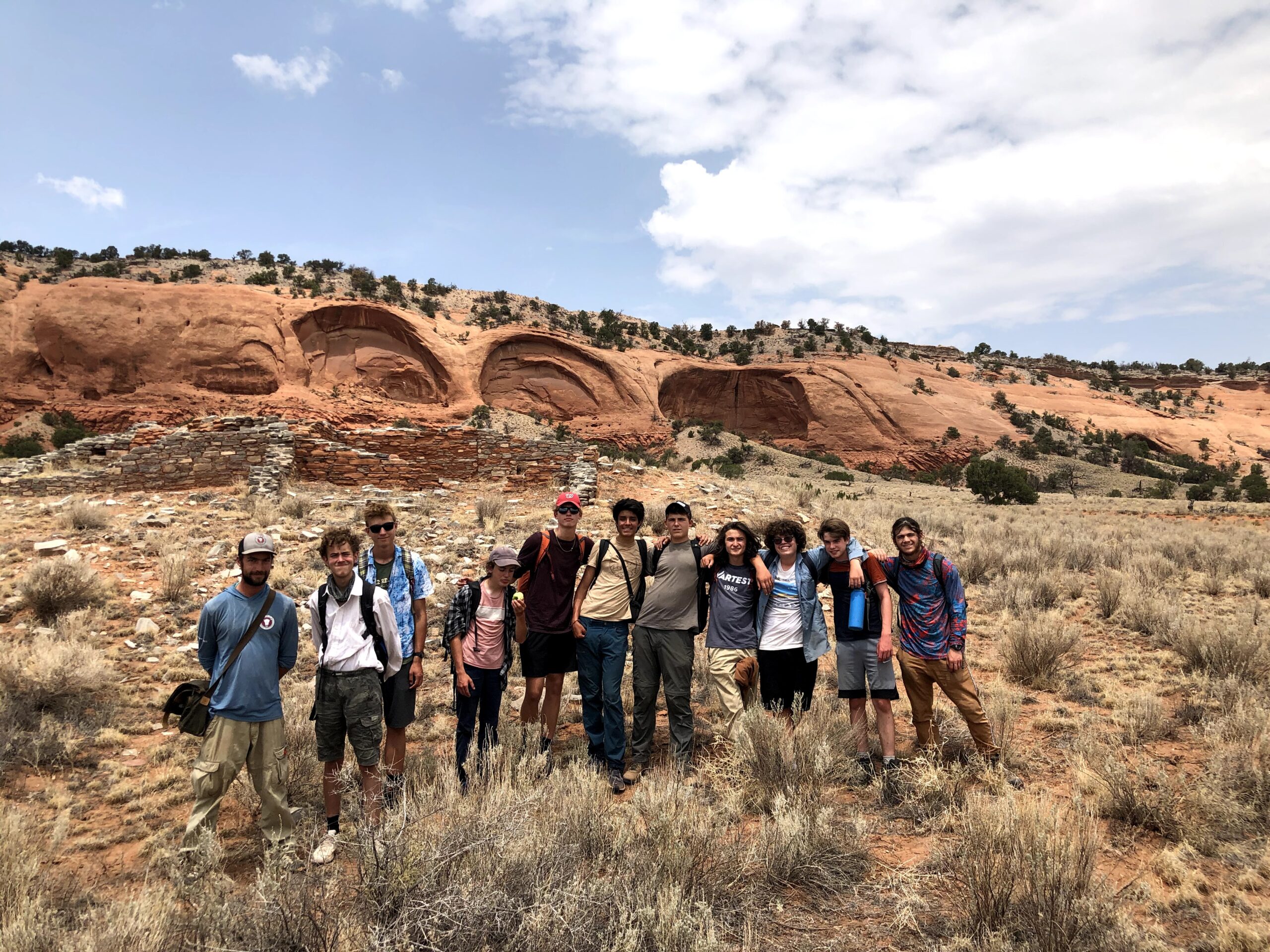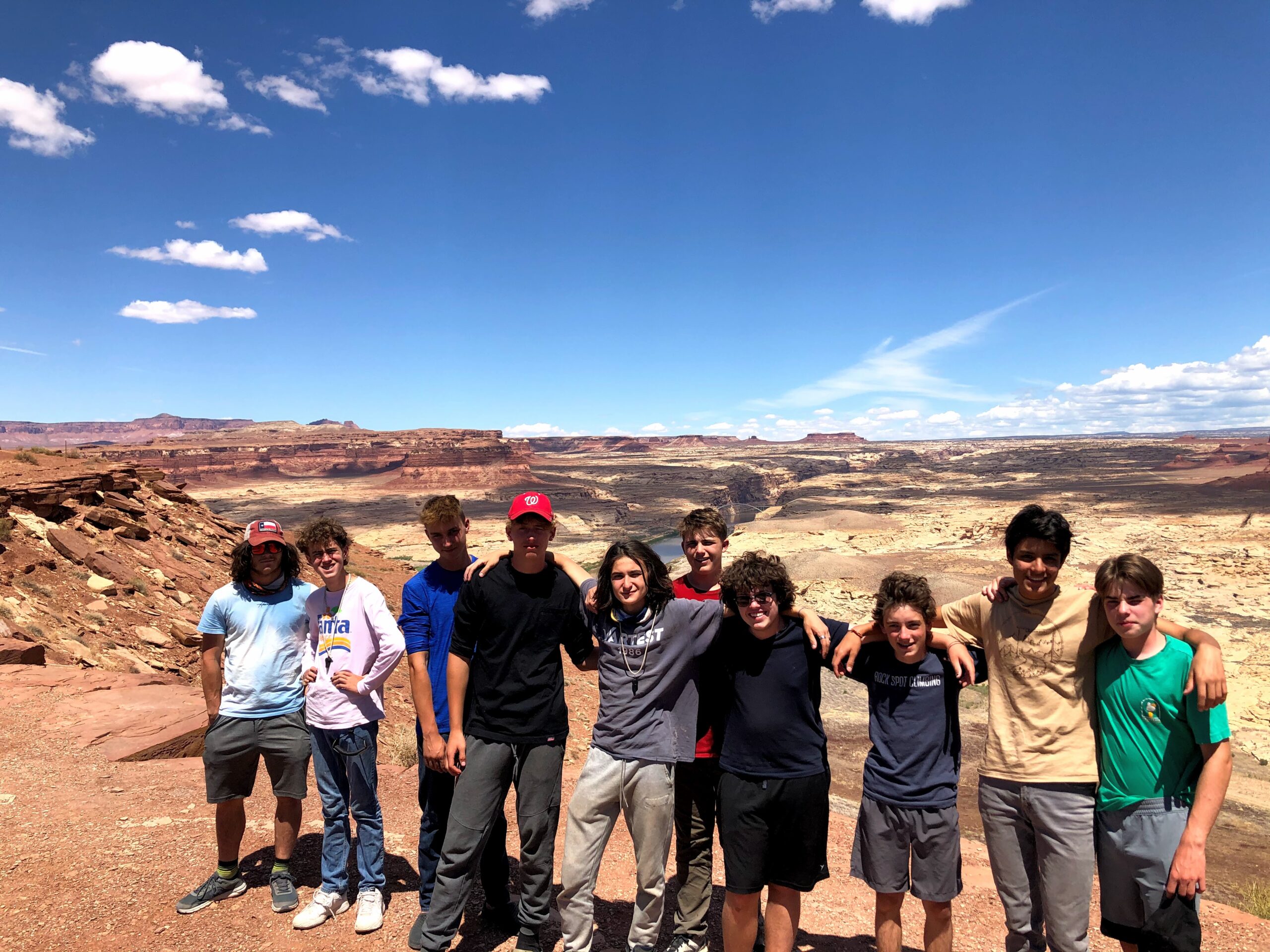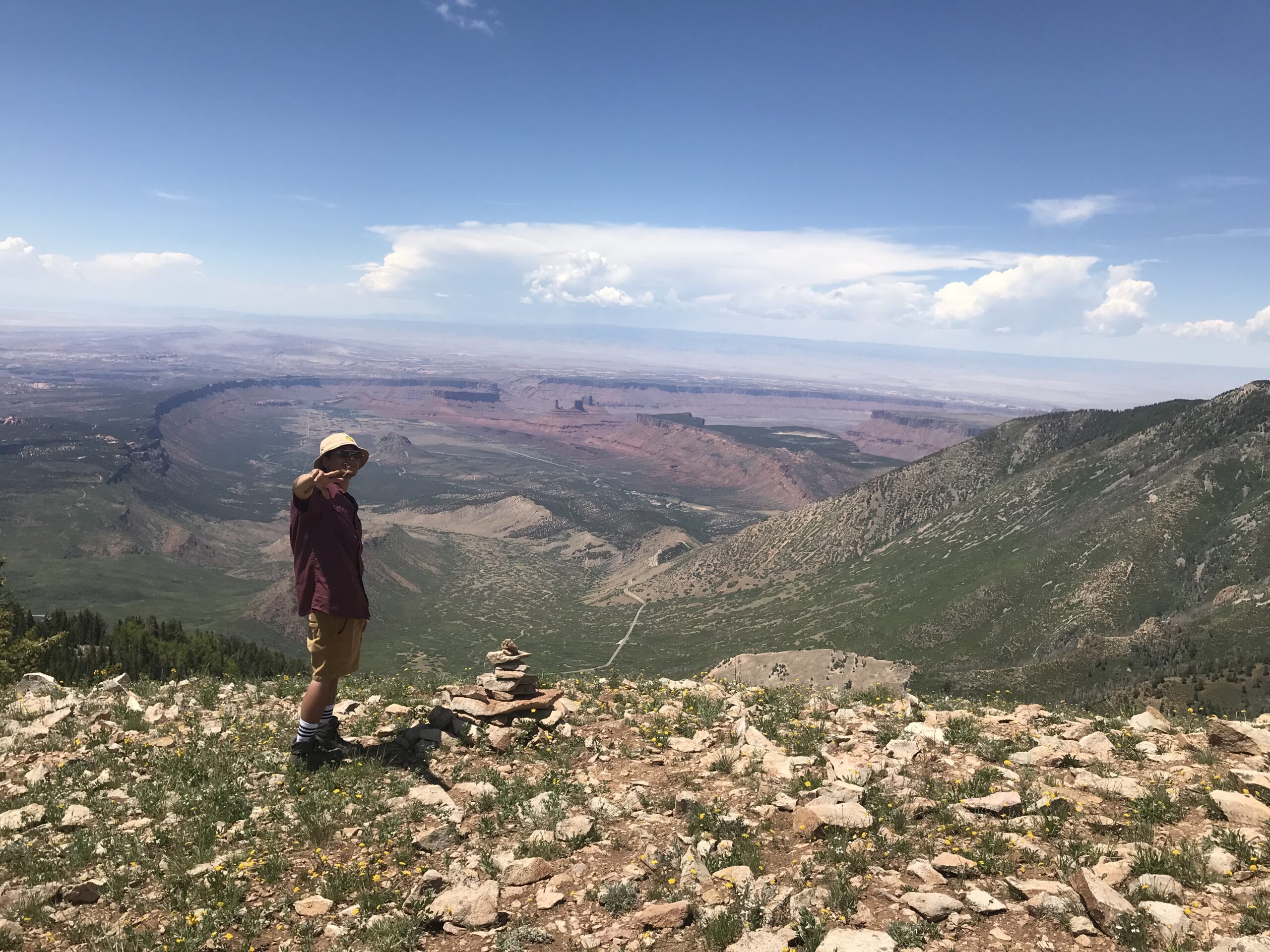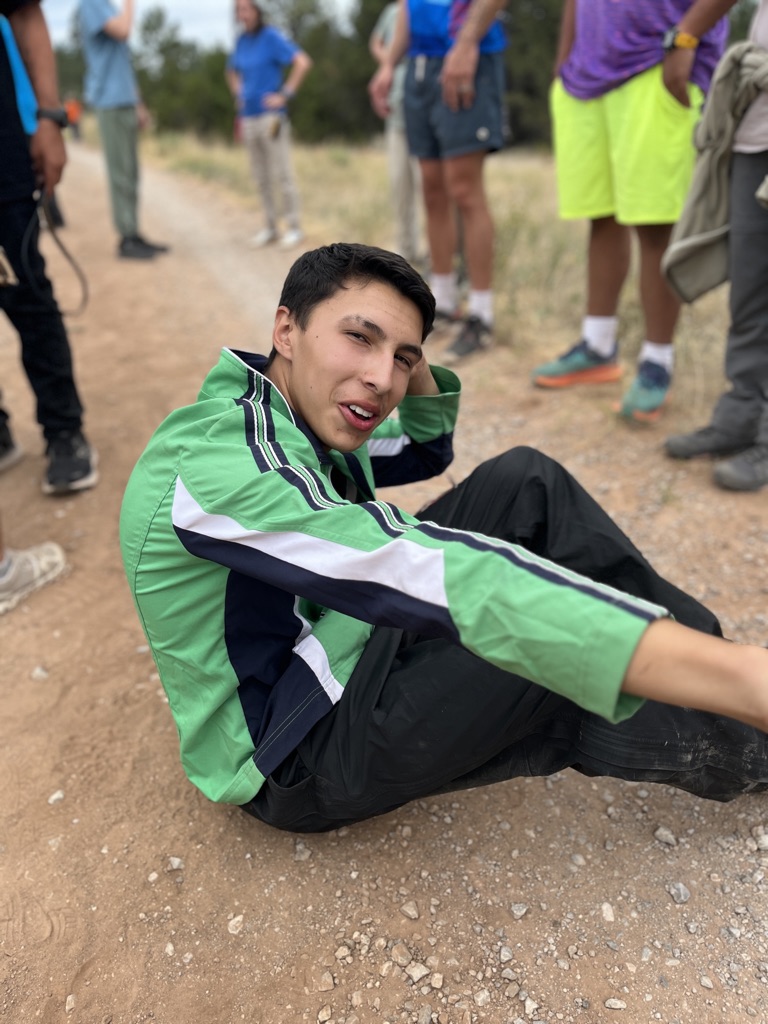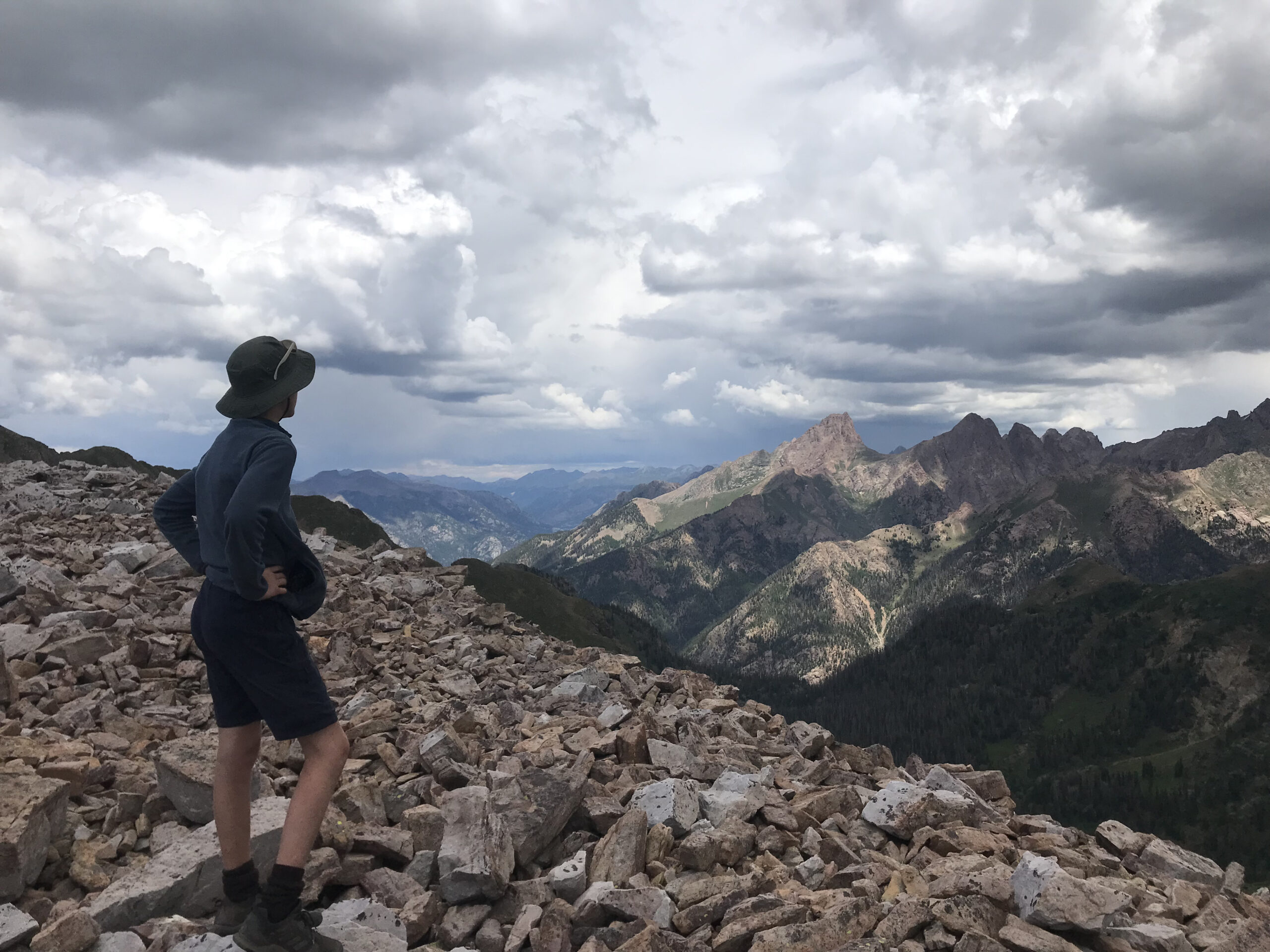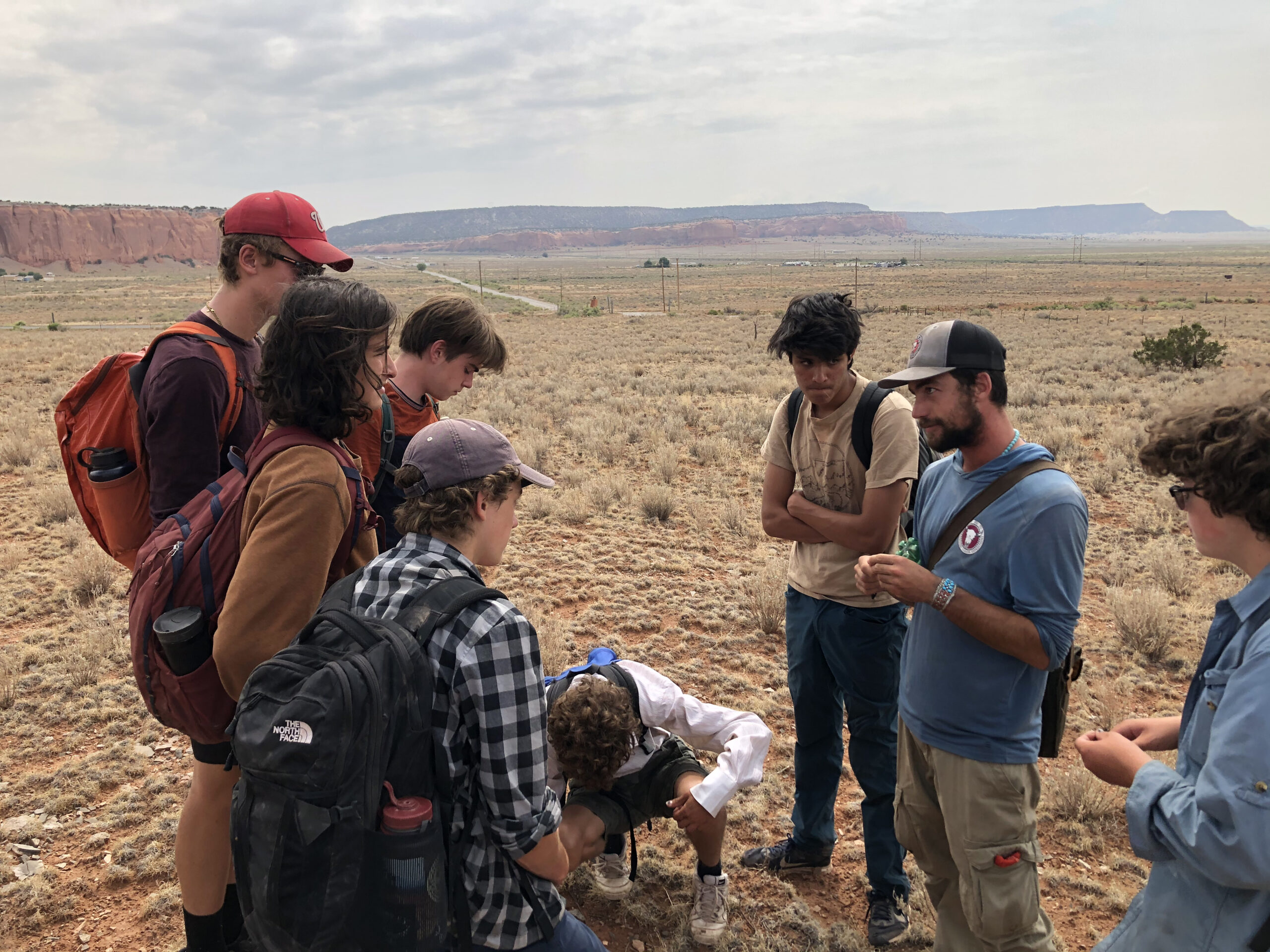Trek Details
People: Who We Are
As the longest running trek at the Gulch, Prairie Trek has an extensive history of bringing young male-identifying 14-16 year olds into challenging and beautiful spaces. PT focuses on further developing identities as members of a greater community, with an emphasis on accountability and mindfulness. This trek links young people with intersecting identities and challenges them to recognize their roles and responsibilities to each other and themselves.
Personal Identity Within A Community: Prairie Trek is guided by questions of self-discovery and a mindfulness of pre-existing groups and spaces. PT asks:
- Who am I?
- Who do I want to be?
- Who lives/lived here?
- What can we learn from each other?
Collaboration and Cooperation: PT incorporates projects with community partners that are highly knowledgeable about the land, culture and history of the Southwest. Active listening allows for
trekkers to foster their roles as future leaders and honest members of the community.
Shared Experience: PT has historically been composed of young men and male-identifying trekkers. Going on trek with peers who share a gender identity have proved valuable for reflection in both the self and group.
Places: Where We Go
Prairie Trek spends 5 weeks connecting with the Southwest, driven by a focus to establish healthy,
harmonious relationships between trekkers and who/what they encounter. Our gender-focused treks alternate itineraries each year with the expectation that a trekker who attends both years gets a fuller picture of the southwest and their relationship to it as it relates to their personal, physical and social growth.
Basecamp: Each year, PT spends about 10-14 days throughout the summer at our Basecamp, where they can settle into our rustic cabins, swim in the pool, and work with our specialists to practice new skills, and deepen their knowledge about the local cultural and physical geography. It is here, at the end of the summer, that trekkers will be encouraged to work together in developing and executing a legacy project that can be used by the community for years to come.
On the Road: PT spends about three weeks on the road, divided into 2 road loops. On even years, PT starts in Northern New Mexico, getting a feel for the vibrant and complicated culture of the area while challenging through New Mexico’s highest mountain range. Then they embark on adventures in an entirely different environment in Southern Utah, exploring the Moki Dugway and Escalante National Monument.
On odd years, PT starts in Arizona, visiting national monuments such as Petrified Forest and Canyon De Chelly and learning from community members in the Navajo Nation. Their trip culminates in Southern Colorado, exploring the expansive Weminuche wilderness, Mesa Verde national monument and neighboring towns of Durango, and Pagosa Springs.
In the Backcountry: Prairie Trek embarks on two backpacking trips to build up confidence in the backcountry and provide a scaffolded experience. The first trip (1-2 nights) allows the group to get to know each other, immersed in the dramatic wilds of the southwest. The second trip (3-5 nights) is designed to physically challenge the group, and may include river crossings or mountain summits
Projects: What We Do
How do we give back to the places and people we learn from? PT strives to answer this question by incorporating moments of genuine connection and humbling responsibility within guided service experiences.
Taking Action through Hands-On Experience:
- PT will focus on taking action in the communities they visit. This may include restoration projects such as building one rock dams for watershed restoration, mapping and plotting sections of land and removing invasive species from a particular area, all which stem from traditional ecological knowledge.
- Trekkers will lead programming for younger trekkers on a topic they were inspired by in the field, and will be invited to share standout experiences from their road loops at our rendezvous event.
Technical Skills Development:
- Frontcountry camping: Trekkers continue to expand on their technical skills, gaining
comfort in front country camping (tents, tarps, road kitchens and groovers). - Backpacking skills: PT spends enough time in the backcountry that trekkers are able to
strengthen their backcountry skills packing backpacks, using Whisperlite stoves, navigating with a map/compass and setting up camp. - Adventure Skills: Each trekker will encounter opportunities to learn or practice skills in mountain biking, rappelling, rock climbing, belaying, and bike packing.
Legacy projects:
In addition to opportunities for leadership and environmental service projects, trekkers in PT are encouraged to use reflections on their experience to create a meaningful gift to give back to the community. Our staff support each trekker’s design through implementation using a project-based-learning approach. Legacy projects have been an important foundation of trek experience for decades, with many projects - benches, weather-recording-systems, ecological reports, storage systems- being utilized for decades.
For Prairie Trek, Turquoise Trail Trek, Quartz Trek and Mountain Desert Trek there is the option of a trekker to apply to be a Cook’s Assistant or Quarter Master (CA and QM). Click here to apply.
